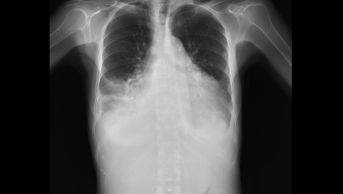
Shutterstock.com
Patients who have chronic but stable heart failure should have their diuretic use reconsidered, researchers have suggested.
A study presented at Heart Failure 2019, a scientific congress of the European Society of Cardiology (ESC) in Athens (26 May 2019), looked at the safety and tolerability of deprescribing the diuretic furosemide in 188 patients with chronic but stable heart failure — half of whom would continue taking furosemide while the other half were given a placebo.
While diuretics are commonly prescribed for symptom relief in heart failure patients, the researchers say that few studies support either the use of, or discontinuation of, diuretics in chronic heart failure.
During the 90-day double-blind randomised trial, the researchers assessed patients’ levels of dyspnoea (shortness of breath) four times, and tracked the number of patients who requested additional diuretics to what they were already being given. They found no difference between the two groups in terms of self-perception of their dyspnoea during the 90 days.
It was found that 72 patients (75.3%) in the placebo group and 78 patients (83.9%) in the furosemide group were free of furosemide reuse during follow-up (p=0.16).
In the placebo group, there were five heart failure hospitalisations or emergency room visits, while in the furosemide group, two patients died and there were three heart failure hospitalisations or emergency room visits.
The team concluded that stopping diuretic use appeared “to be well tolerated in most of the patients and might deserve consideration in the appropriate clinical setting”.
Andréia Biolo, a researcher at the Federal University of Rio Grande do Sul, Brazil, who presented the results, said: “The results show that patients with stable heart failure who stop diuretics do not have more dyspnoea than those who continue taking the drug.
“Withdrawal also does not lead to increased reuse of diuretics — around 20% of patients in both groups needed a top-up, presumably for symptom relief. Patients can be followed-up in the usual way … and, as we do now, patients should be educated to seek medical help if they become breathless, get oedema, or have sudden weight gain which indicates fluid retention.”


